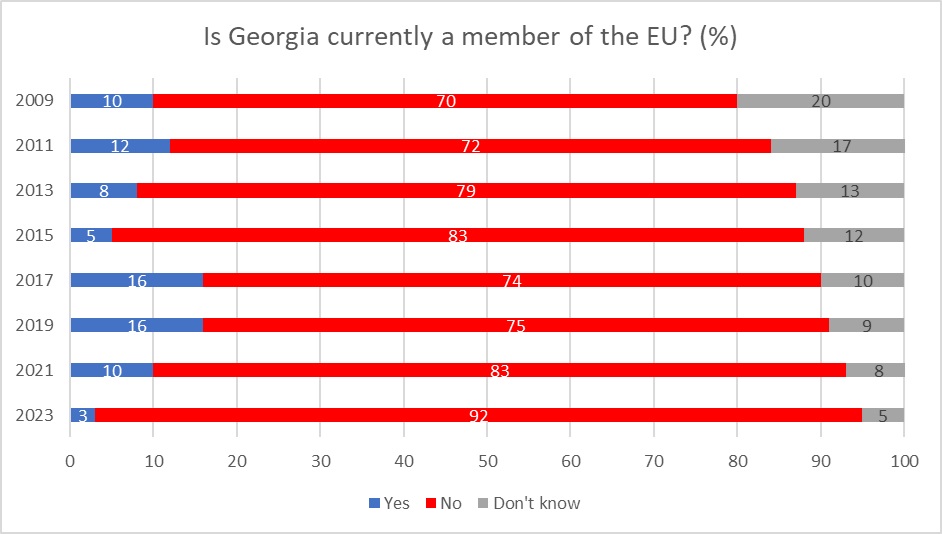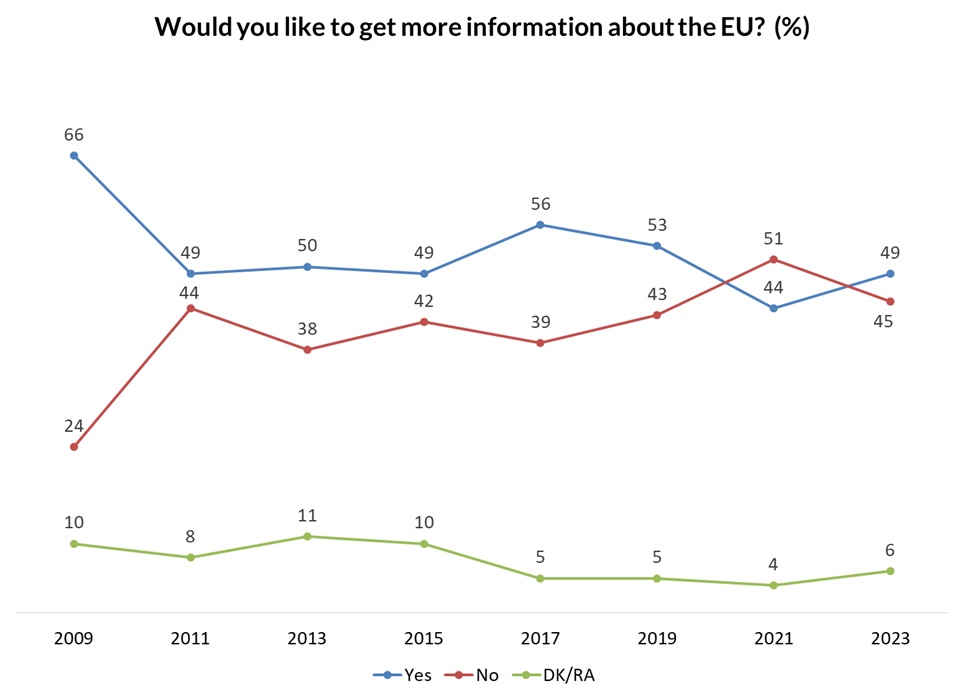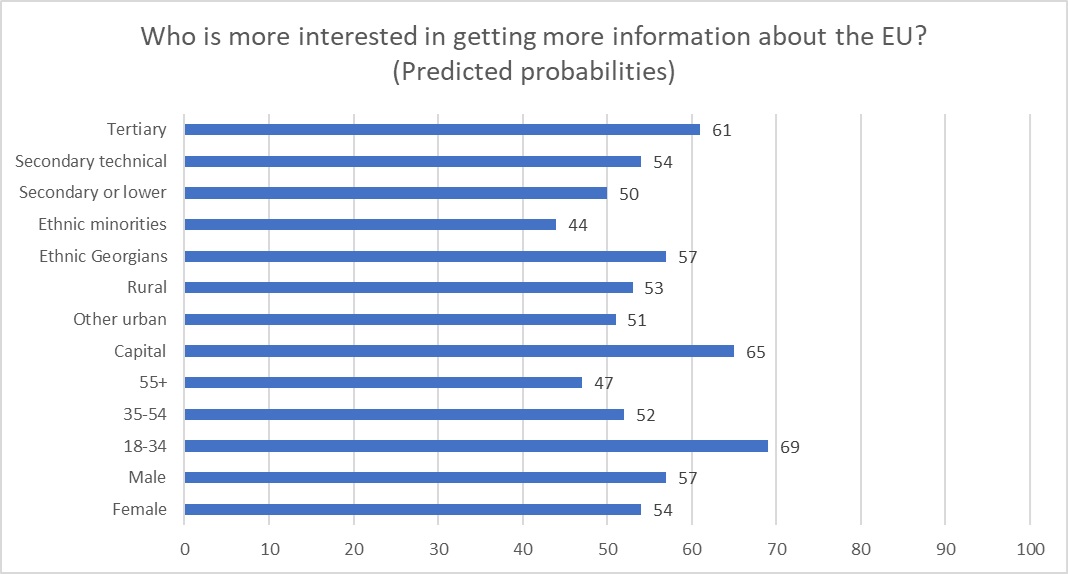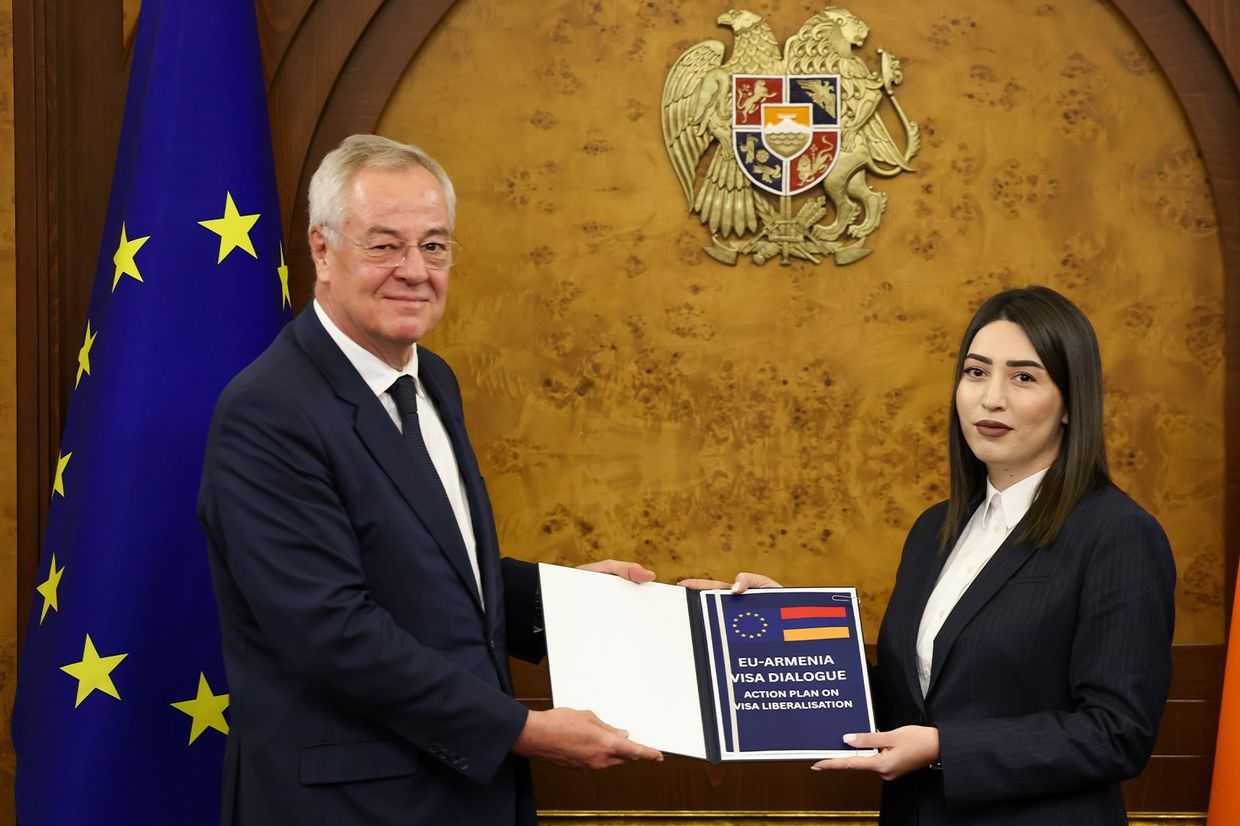
In the months prior to the EU’s announcement of whether Georgia will receive candidate status, more Georgians were aware than ever before that the country was not yet a member of the EU.
While surveys have consistently shown that a large majority of Georgians would vote for the country’s membership in the European Union, they have also previously shown that large shares of Georgians — up to one in six — believed that the country was already a member of the EU.
Newly released data from the 2023 CRRC Georgia and Europe Foundation survey on ‘Knowledge of and attitudes towards the EU in Georgia’, collected in the spring and summer of 2023, shows that more Georgians are aware that the country is not a member state than ever before.
Survey respondents were asked whether Georgia is currently a member of the EU. The vast majority — 92% — reported that Georgia is not currently a member. This is nine percentage points higher than recorded in any other year of the survey, since 2009. It is a full 22 points higher than during the first wave of the survey in 2009.
In 2023, only 3% reported that Georgia was already a member, compared with 16% in 2017 and 2019. The closest year to the current levels was in 2015, when only 5% reported that Georgia was already part of the EU.
There has also been a corresponding decline in the share reporting uncertainty about whether Georgia is or is not a member of the EU.
In contrast to 2015, when 12% of the public was uncertain about Georgia’s membership status, only 5% were uncertain about whether Georgia is a member of the EU in 2023.

While more people are now aware of Georgia’s membership status, interest in getting more information about the EU itself has remained largely consistent between 2011 and 2023, with small fluctuations between years. For example, since 2021, interest in getting more information increased by five percentage points.

However, interest varies between different demographic groups.
Young people (18-34) are 17 percentage points more likely to be interested in information about the EU than 35-54 year olds, and 22 percentage points more than those aged 55+.
People from Tbilisi are 12 percentage points more likely to be interested in receiving more information about the EU than people living in rural regions, and 14 points more likely than people in other urban areas.
Ethnic Georgians are 13 percentage points more likely to be interested in getting more information on the EU than ethnic minorities.
People with tertiary education are 11 percentage points more likely to be interested in receiving more information on the EU than people with secondary or lower education.

While in 2023, people were more aware of Georgia’s EU membership status than ever before, the public’s interest in being informed about the EU has remained stable.
This article was written by Anano Kipiani, a researcher at CRRC Georgia, and Kristina Vacharadze, Programmes Director at CRRC Georgia. The views presented in this article are the authors’ alone, and do not necessarily reflect the views of CRRC Georgia, Europe Foundation, or any related entity.








